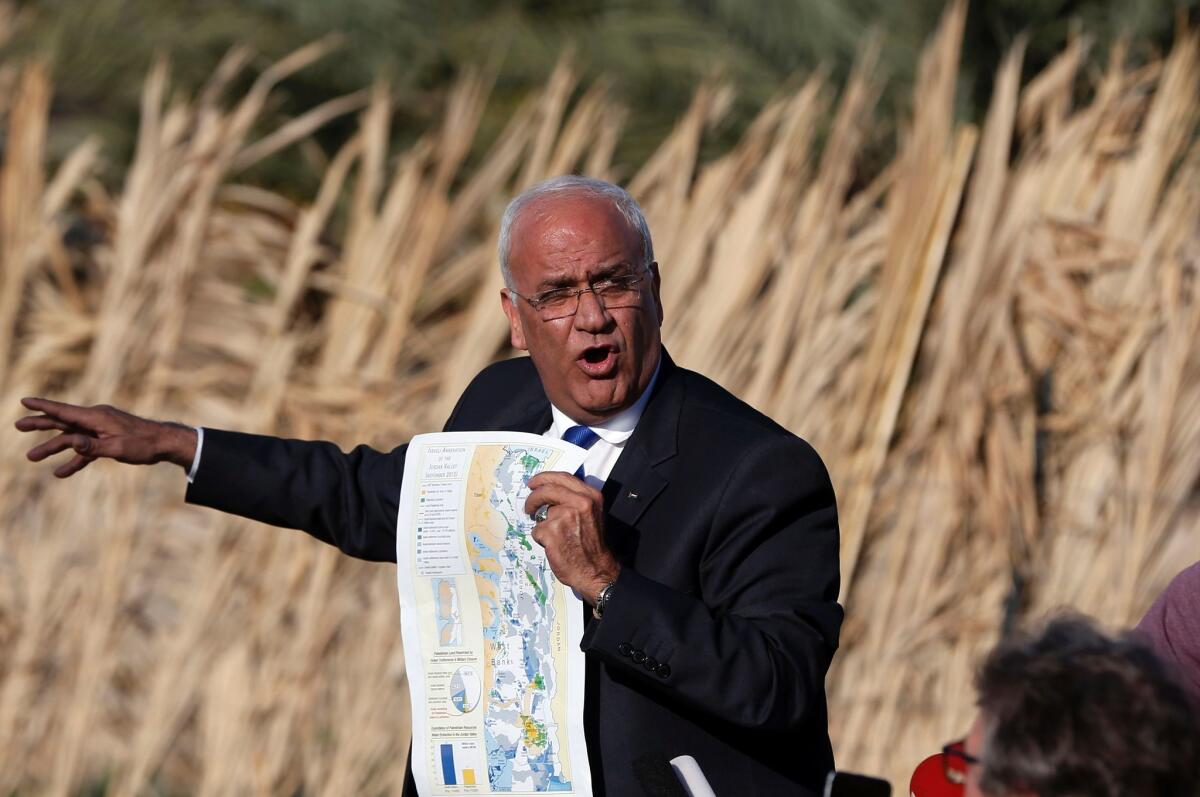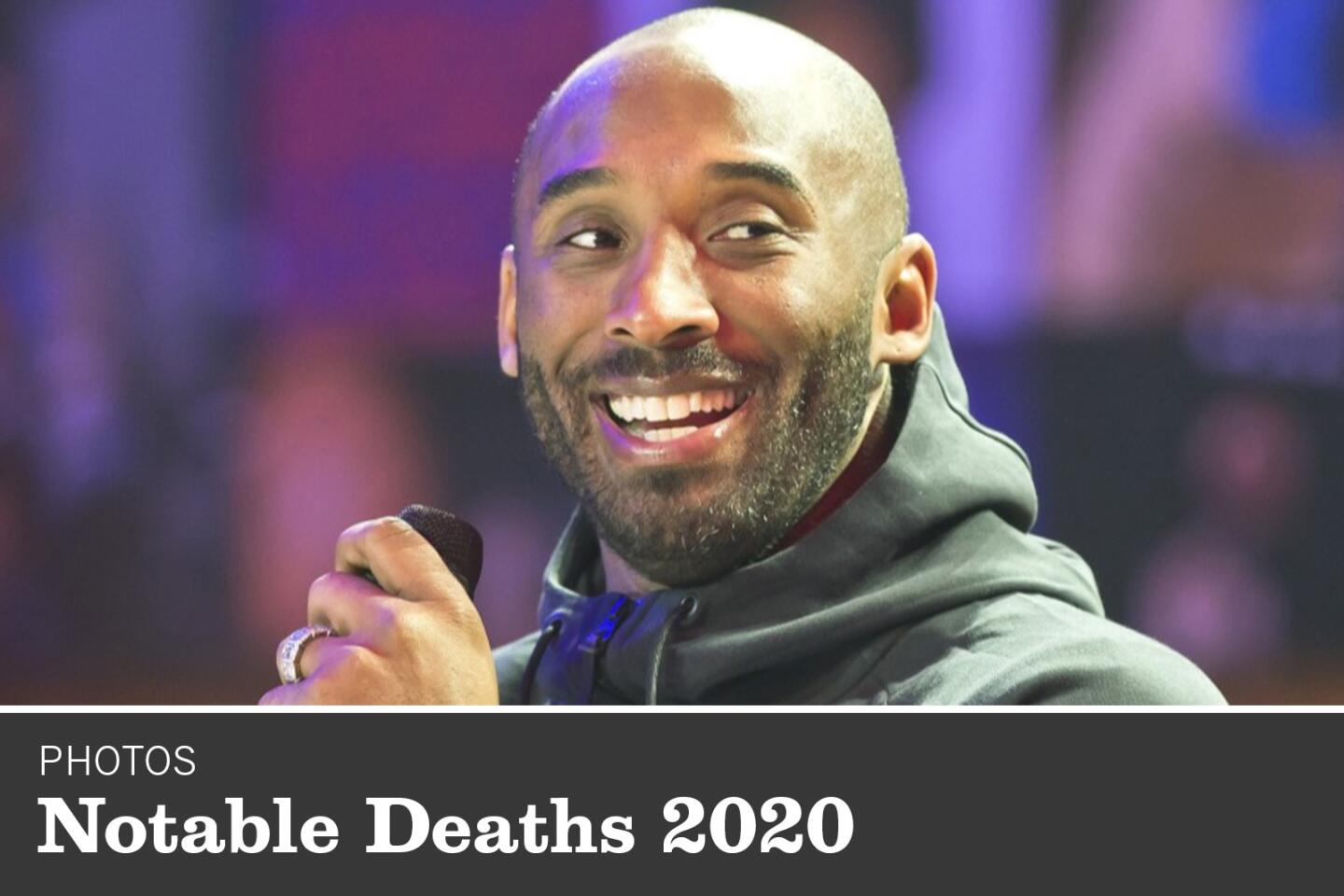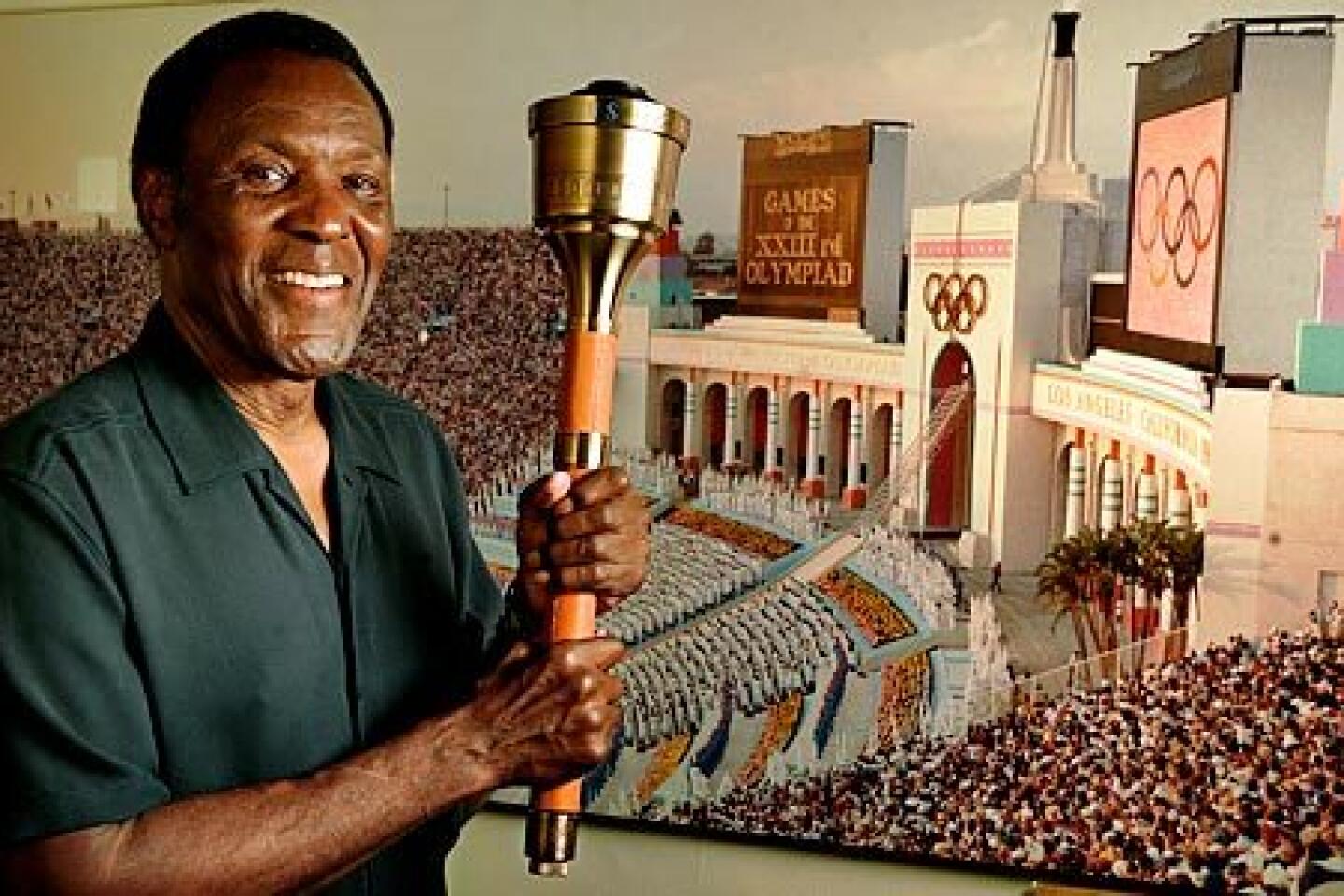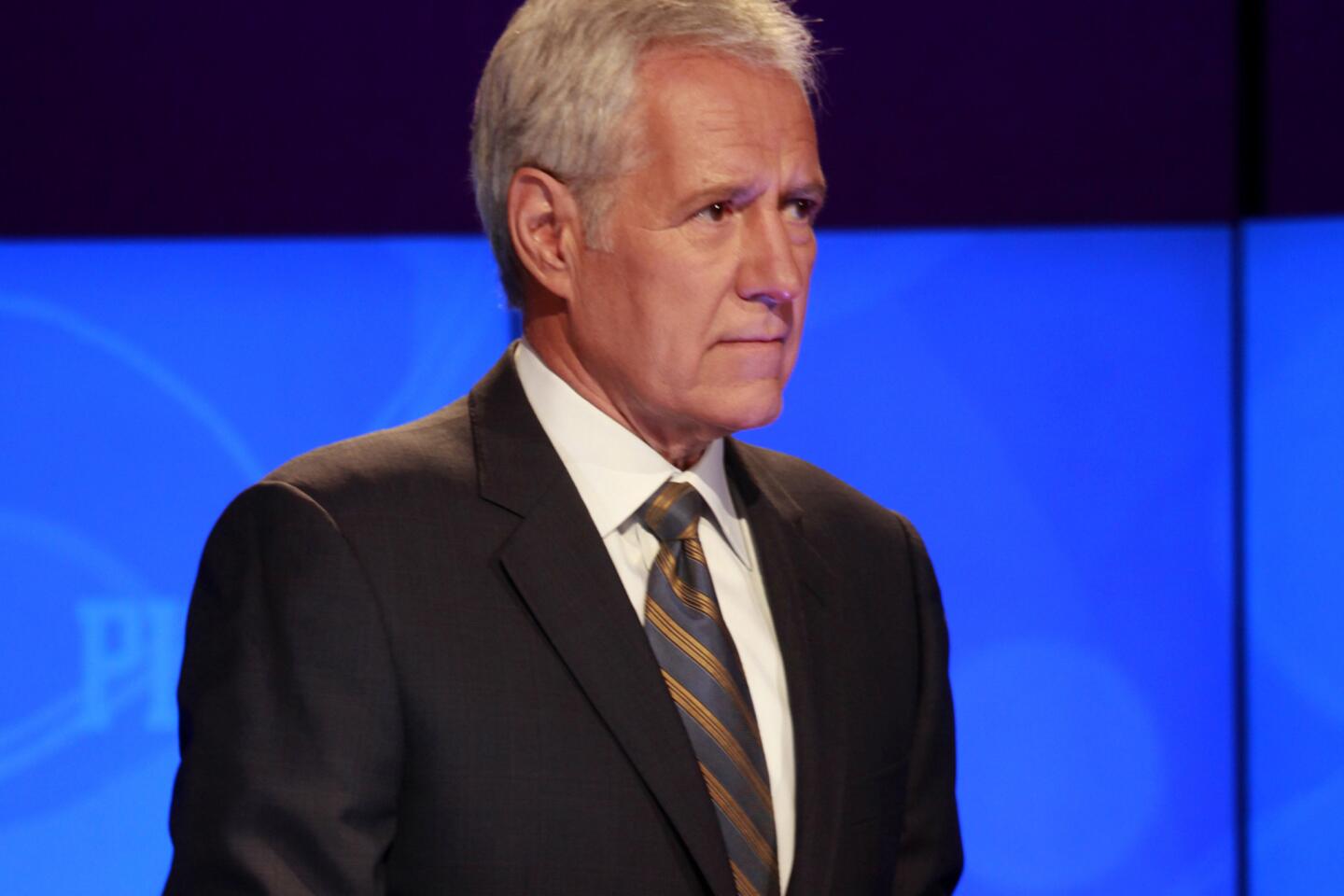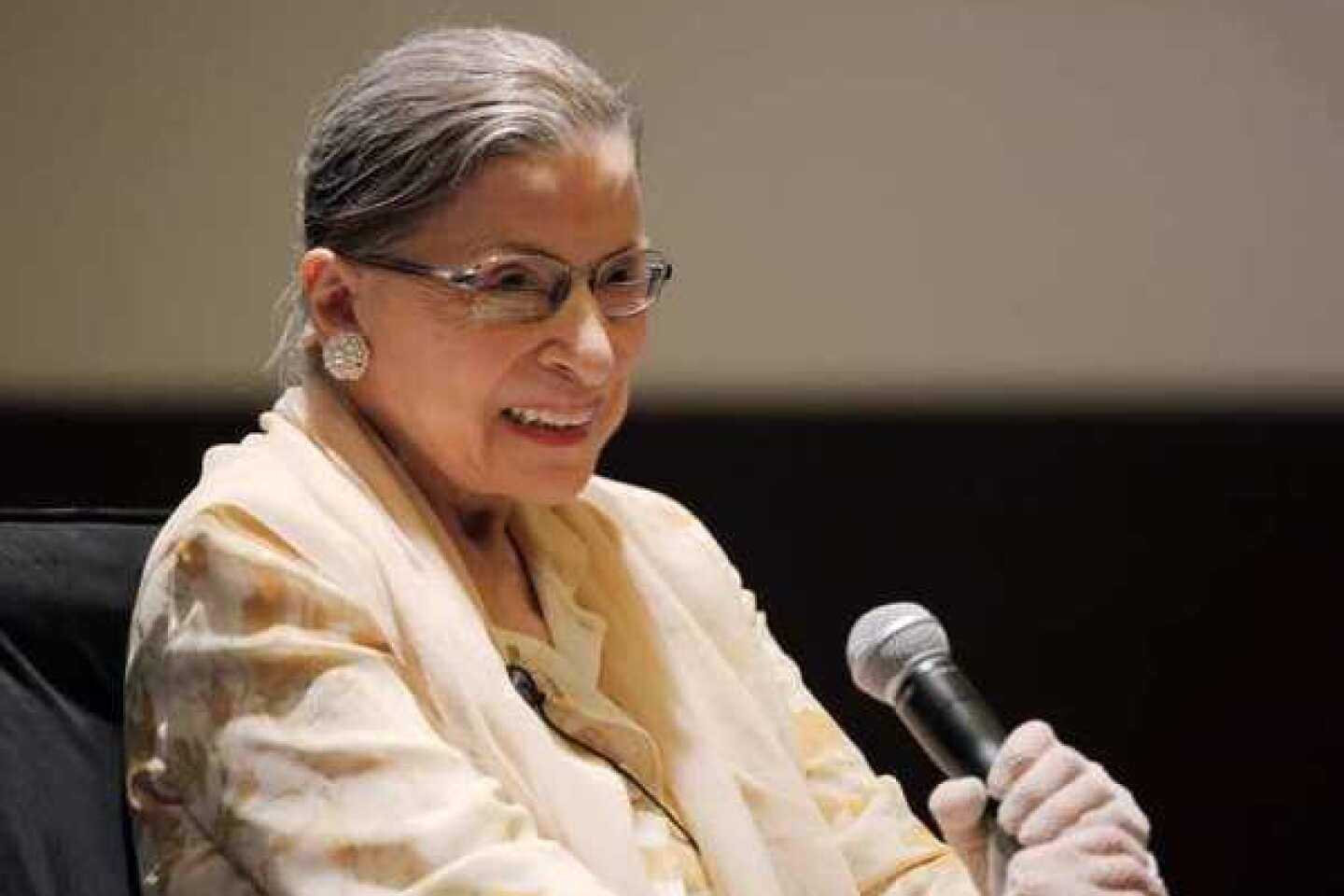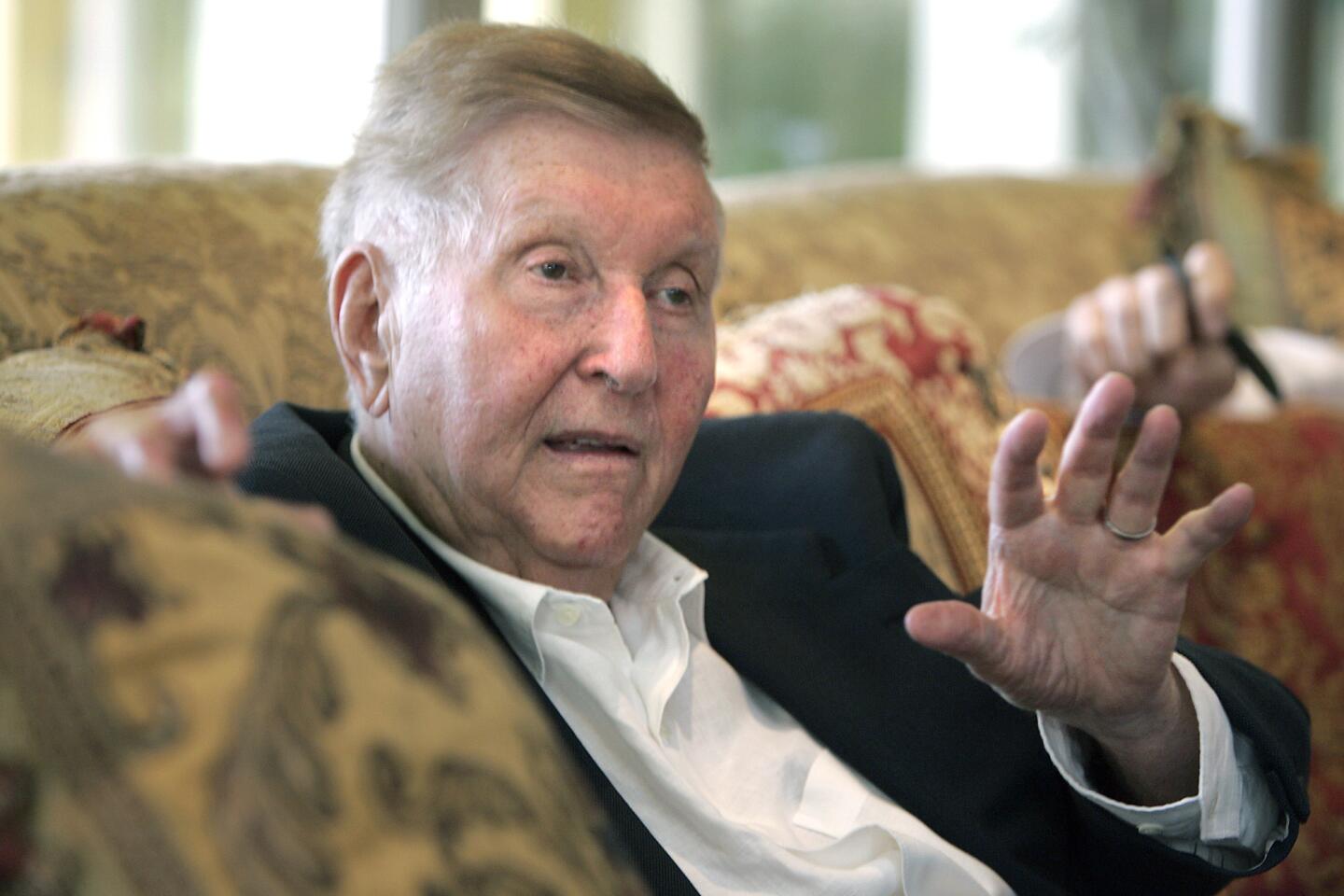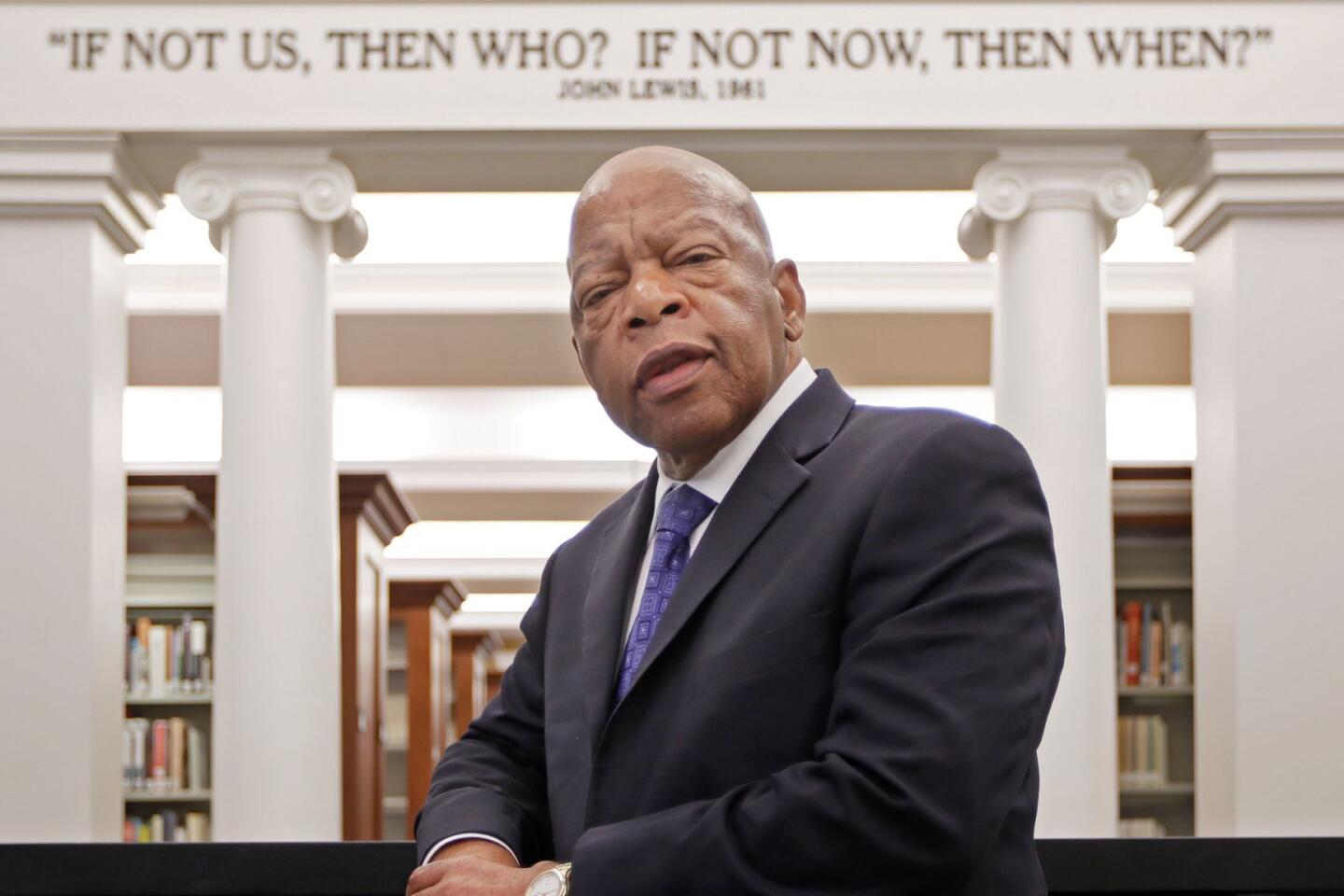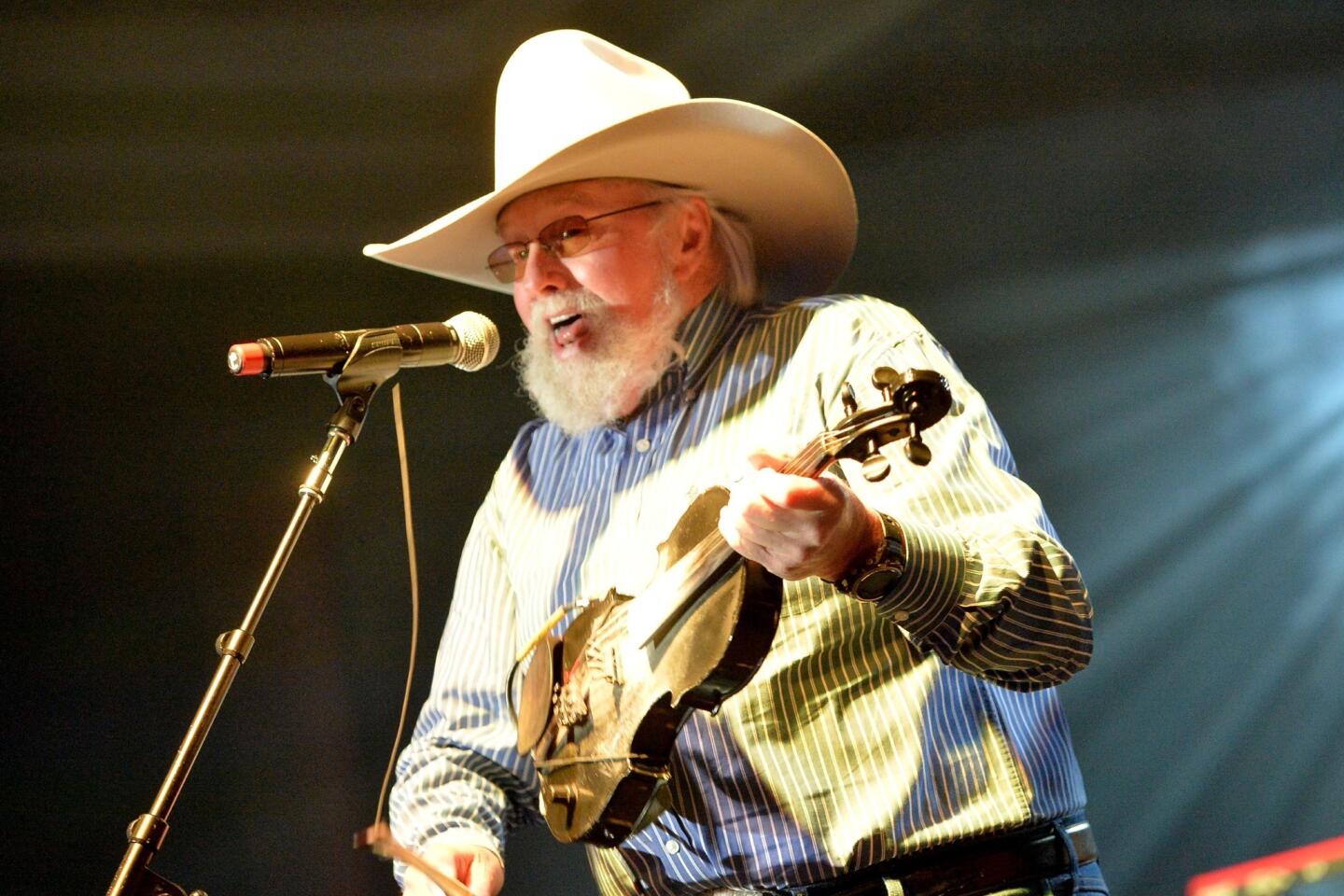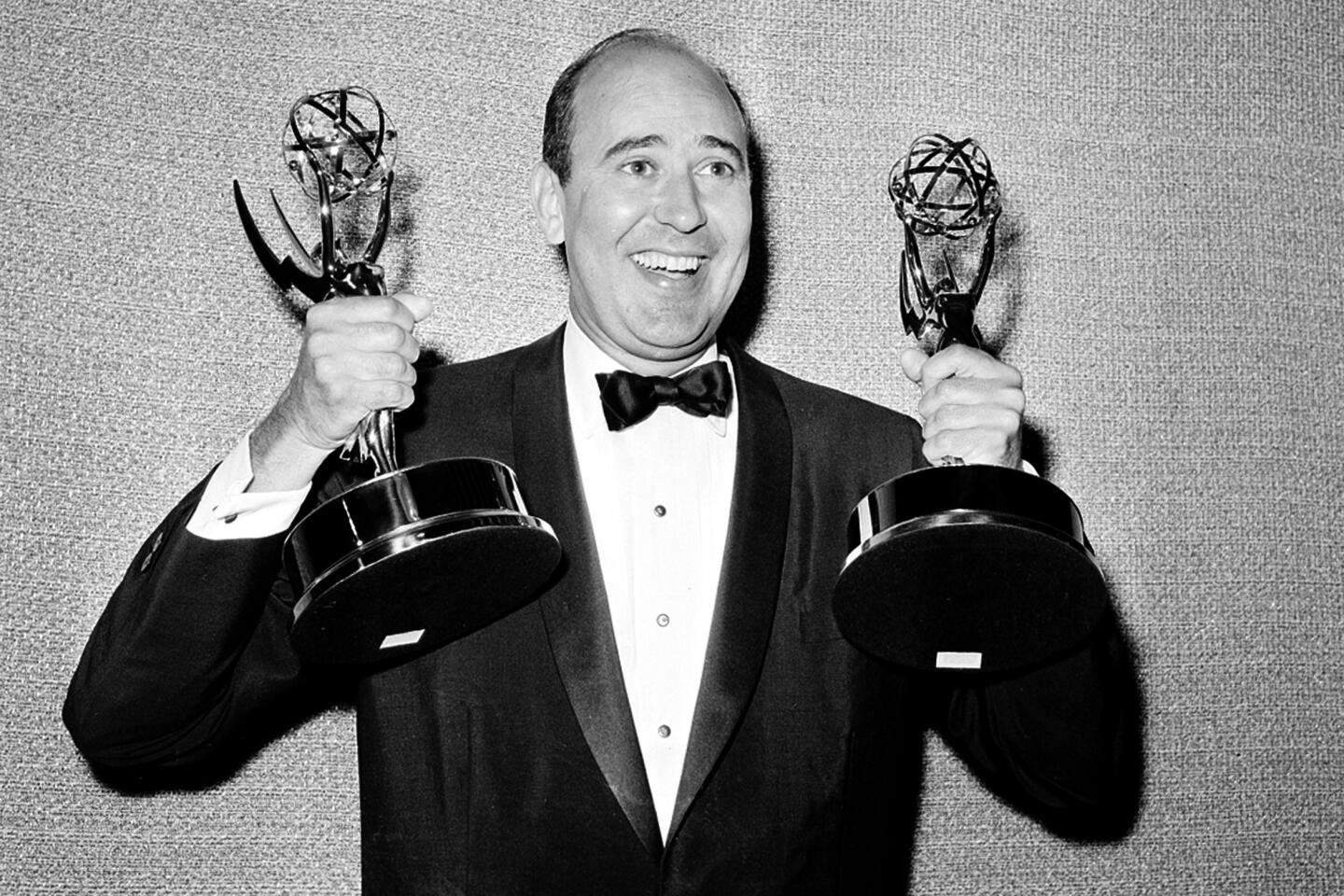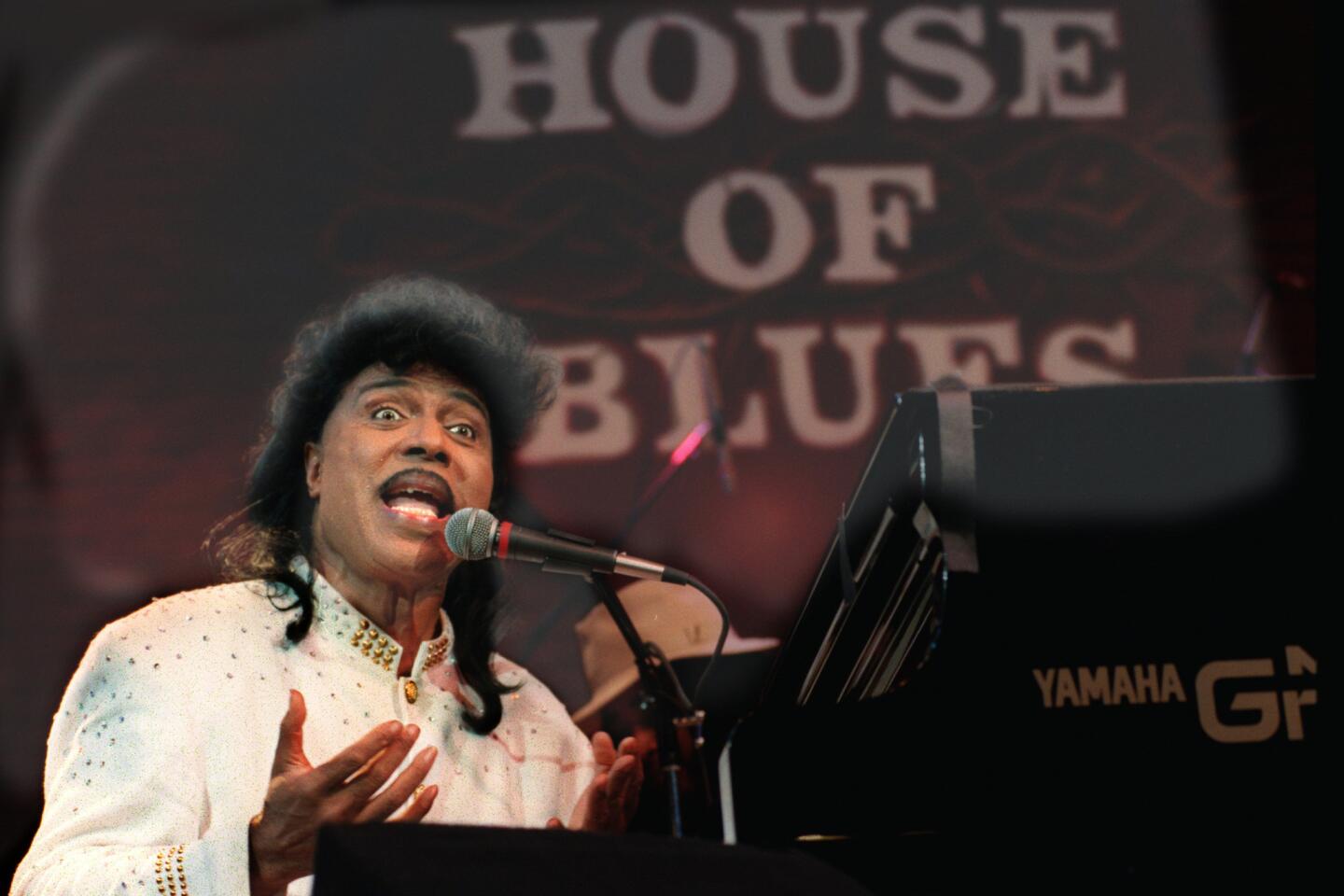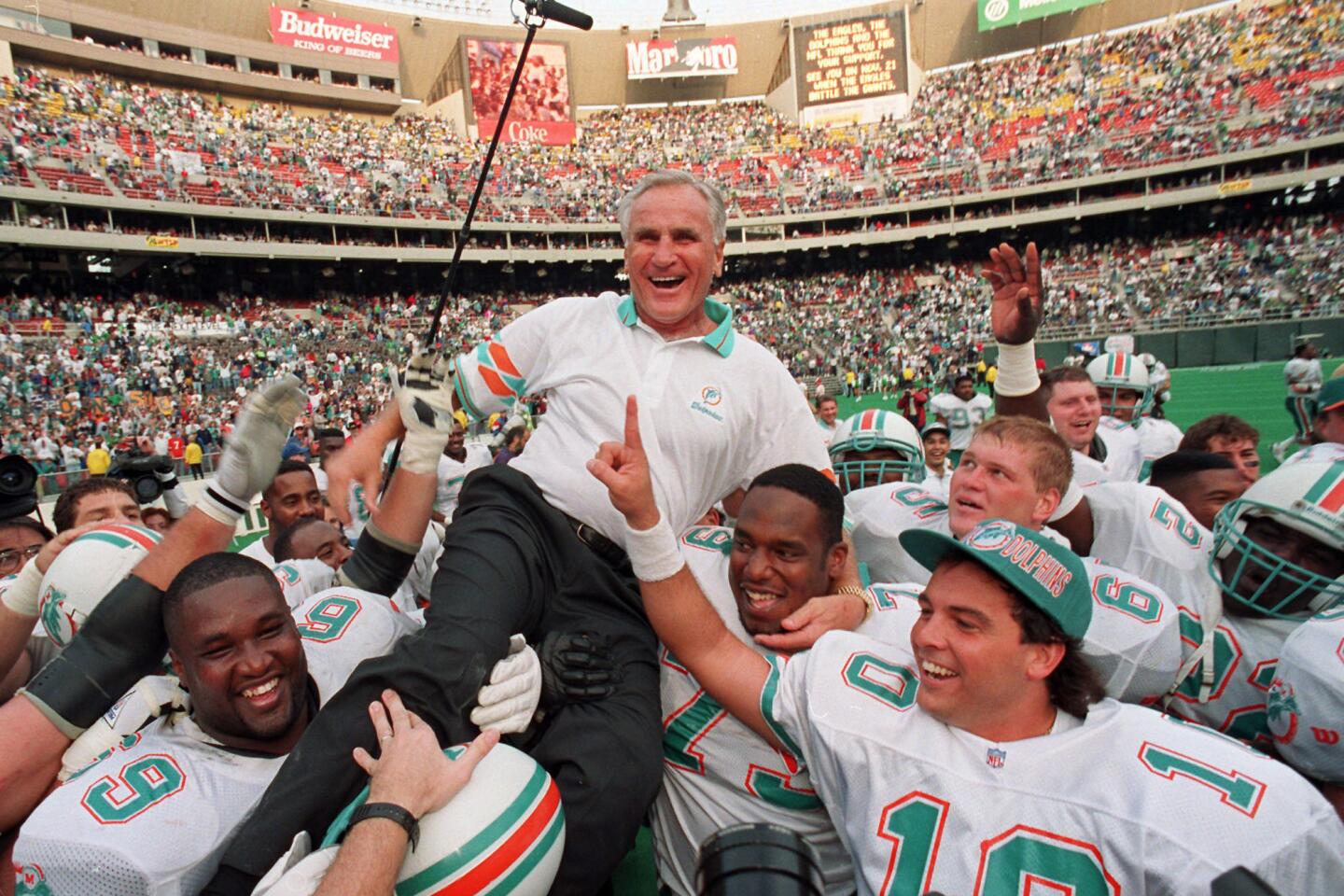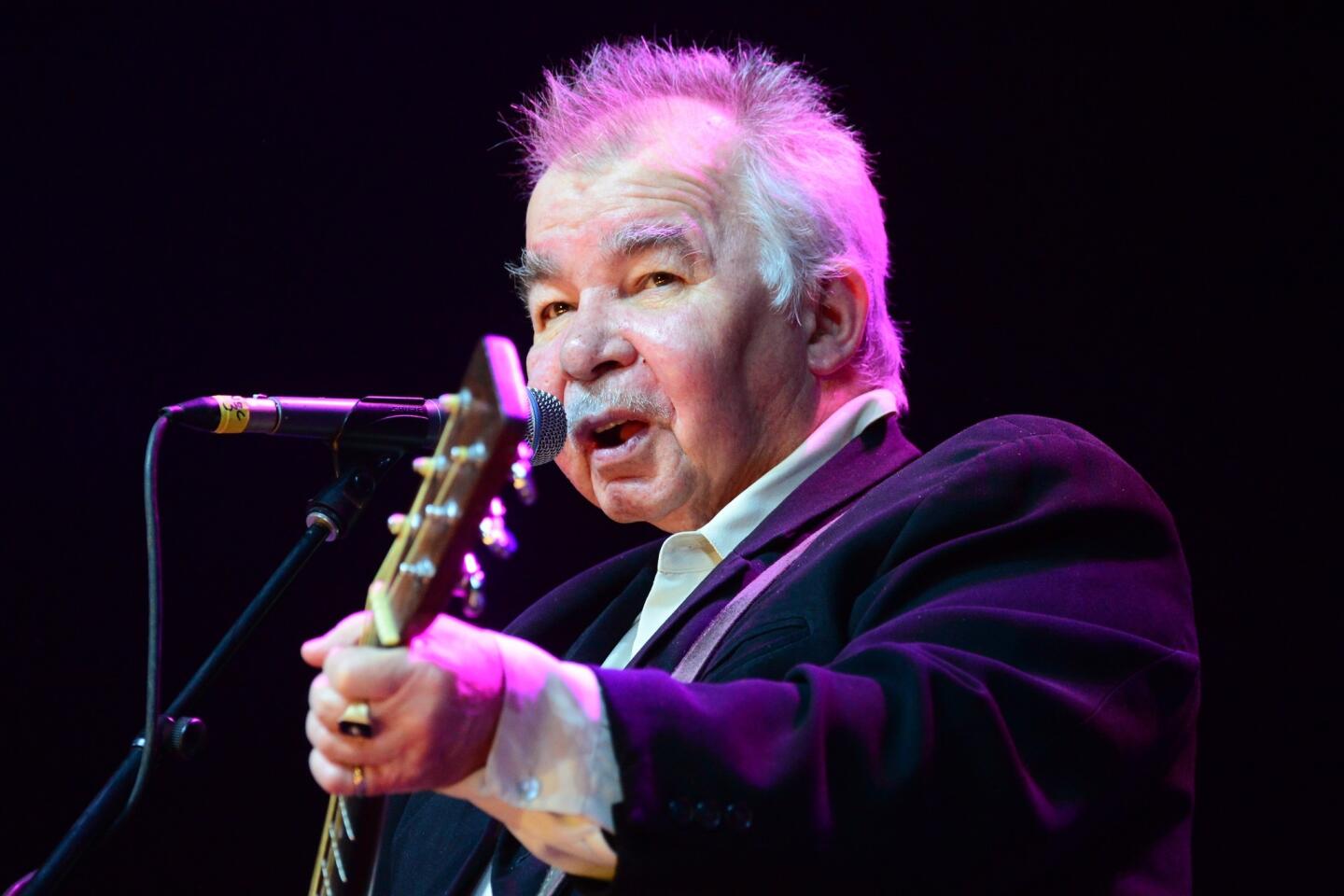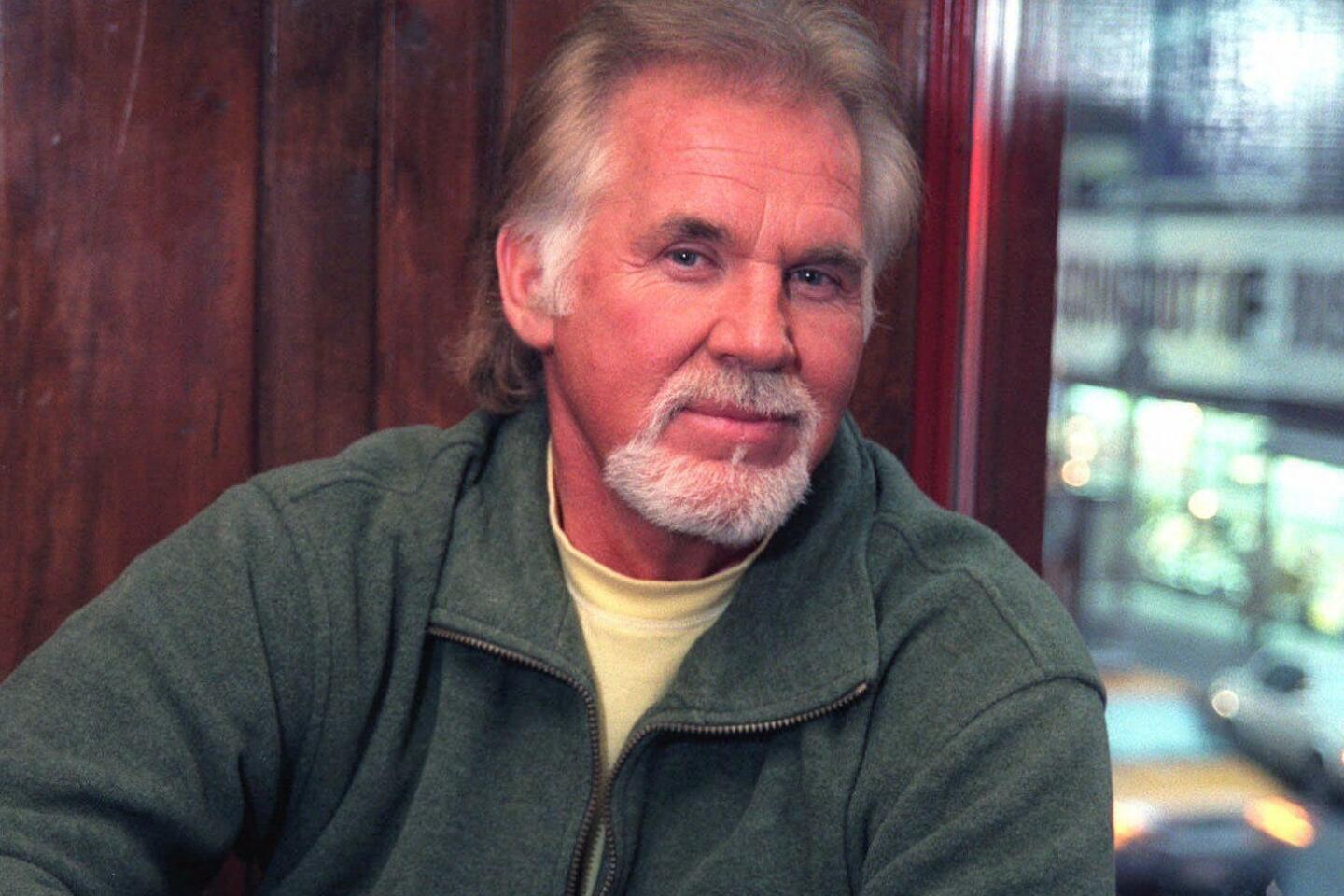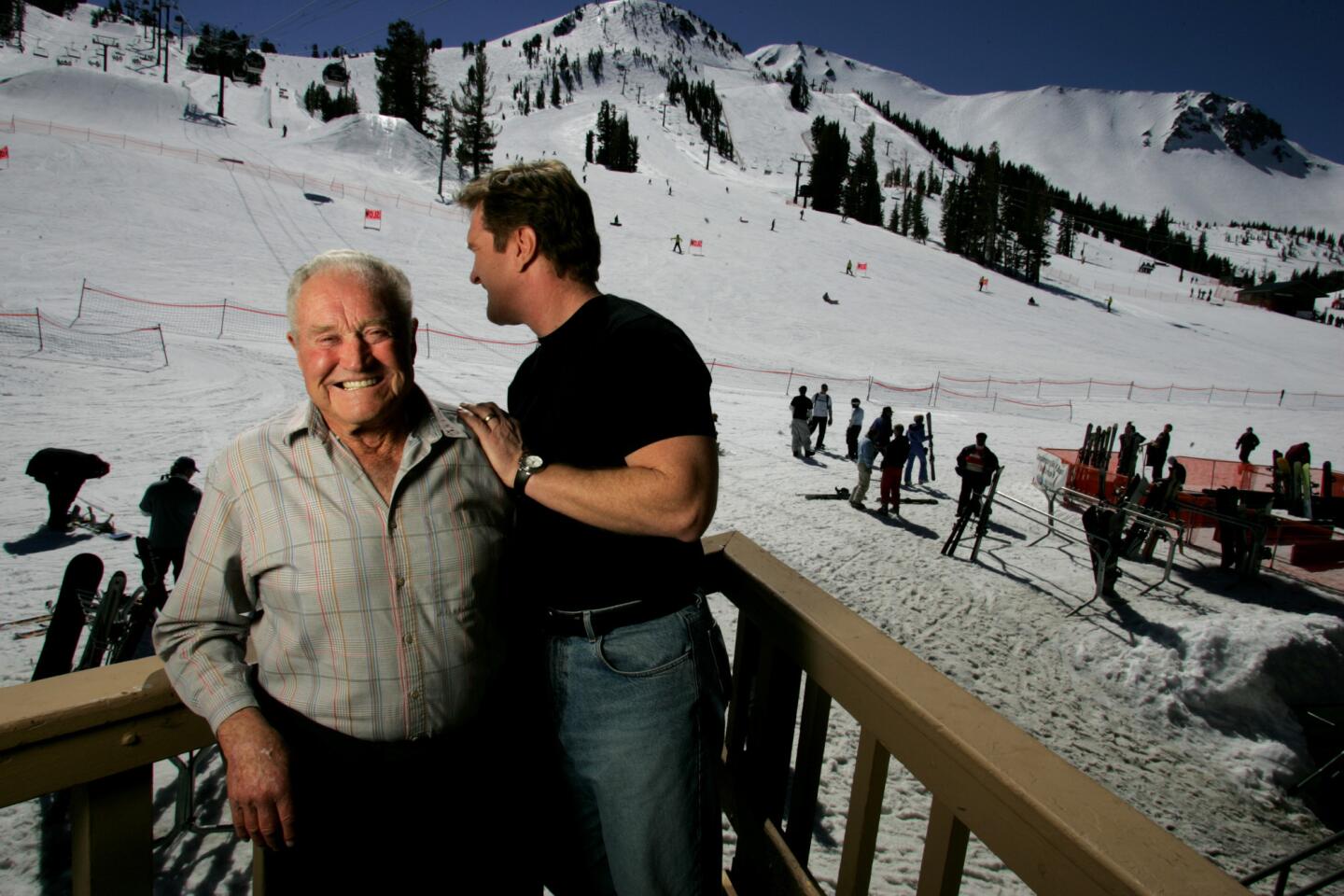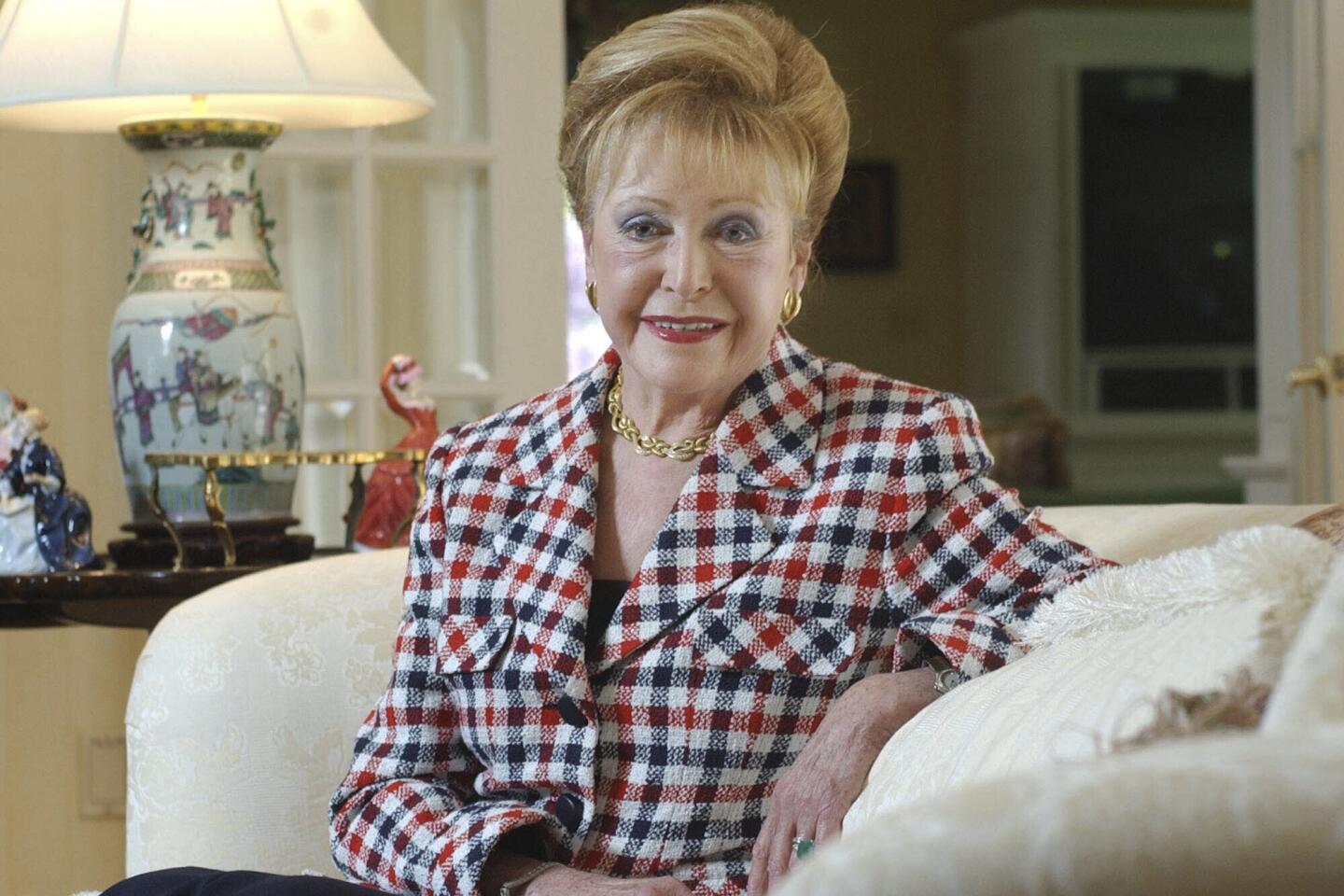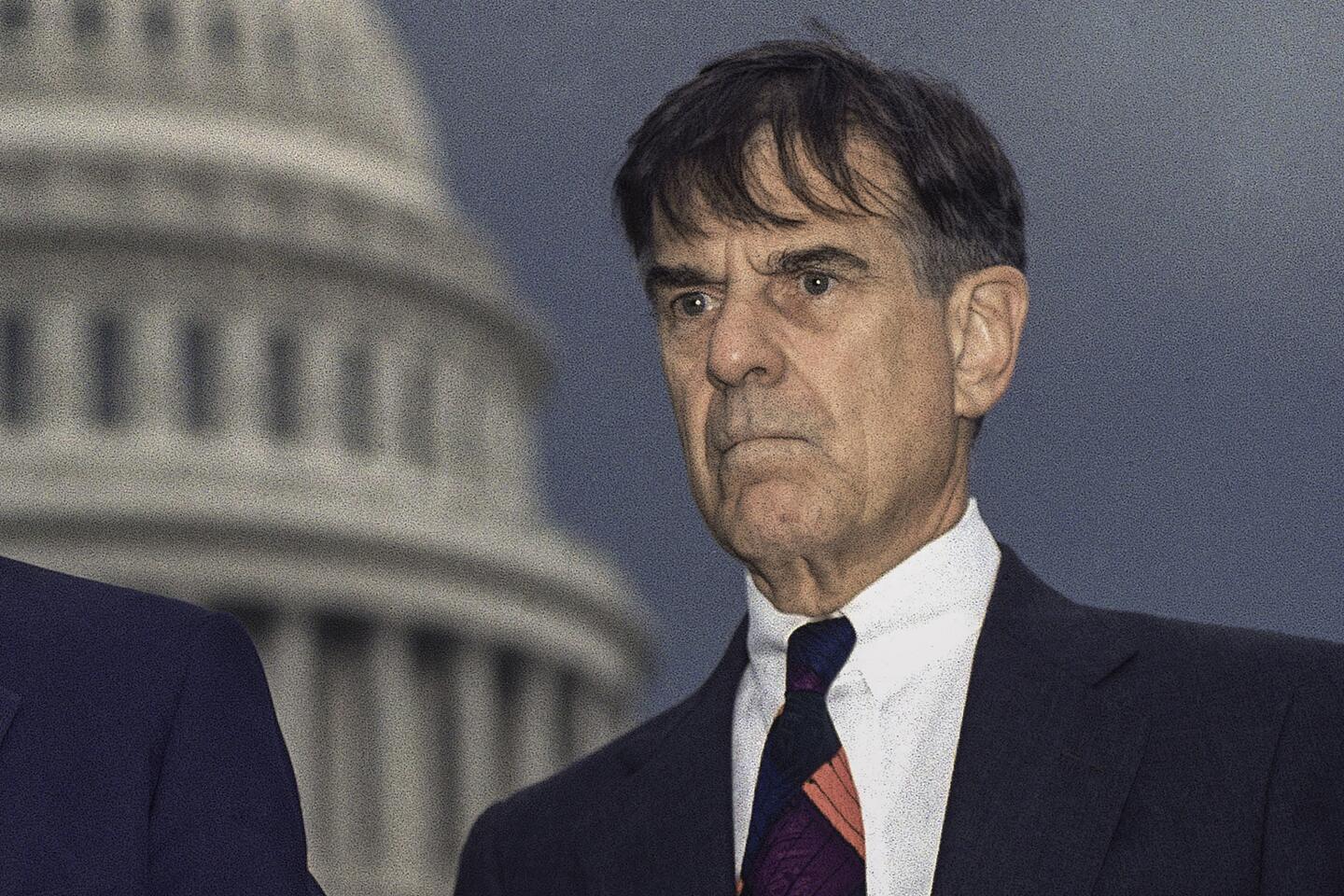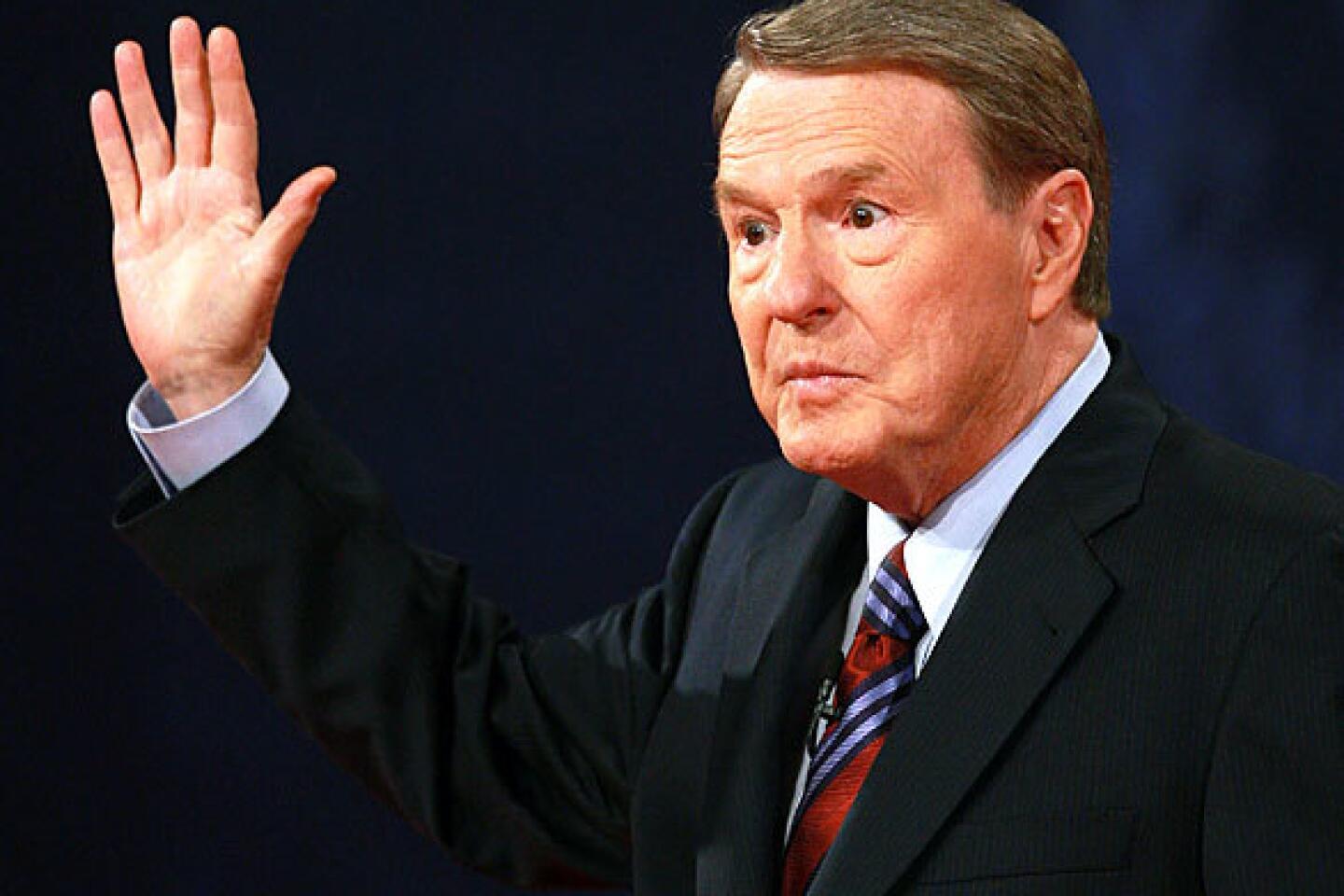JERUSALEM — Long after peace talks between the Palestinians and Israel broke down, Saeb Erekat continued to be referred to as the Palestinians’ chief negotiator. His title was testament both to a certain unassailable status he held in the history of his people — and the stasis of the cause.
Arguably the most internationally recognized Palestinian figure for decades, after Yasser Arafat, Erekat helped craft the landmark Oslo peace accords in 1993 that opened the path to normal relations — since collapsed — and that won Israeli and Palestinian leaders a Nobel Prize.
Charismatic and articulate, he defended the Palestinian plea for land, recognition and statehood from the halls of the United Nations to the studios of the U.S. cable TV shows.
Erekat died Tuesday morning at Jerusalem’s Hadassah Hospital, where he was under care after contracting COVID-19. He was already in poor health, having undergone a lung transplant in the U.S. in 2017.
He was 65.
Erekat’s Fatah party announced his death, which was also confirmed by a relative and a Palestinian official, the Associated Press reported.
Erekat’s smooth, slightly lilting English; round bespectacled face, and frequent five-o’clock shadow made him an appealing figure to many audiences. He was instrumental in ushering the reputation of the Palestine Liberation Organization from that of a terrorist group of airplane hijackers in the 1970s to a legitimate governing body ready and willing to build a nation.
Erekat’s critics among right-wing Israelis believed he white-washed the Palestinian struggle for freedom, which often included terrible violence. Critics within his own Palestinian world often attacked him for not going far enough in pressing for concessions from Israel or the international community.
For many Palestinians, he lacked the street credentials that those who were active in the armed struggle possessed. That hurt him with much of the rank and file, who ridiculed his academic airs.
But he had a nearly unique ability to deal with the international community and especially the Americans.
Aaron David Miller, one of the United States’ most experienced negotiators in the Israeli-Palestinian conflict, said Erekat possessed a talent of communication and attention to detail that Arafat could not find in his other lieutenants.
“He had the set of skills, he was an academic, he did his homework,” Miller said in an interview.
Though he failed to achieve it, Erekat’s desire for peace and an agreement of co-existence between Israel and a future Palestine were foremost in his efforts, those who worked with him said.
“He was truly one of the most committed to peace people in the Palestinian community,” Daniel Kurtzer, who served as U.S. ambassador to Israel from 2001 to 2005, said in an interview.
Some of his American interlocuters, however, grew extremely frustrated with Erekat. He would be one way in private talks, flexible and reasonable, but then rigid and unyielding in public. It had a lot to do with his entrapment in the Palestinian cause, its talking points, and the international world of diplomacy, Miller said.
U.S.-educated and an admirer of the United States he encountered in his youth, Erekat was especially dismayed at the deteriorating relationship between Palestinians and the Trump administration, which sided with Israel in all settlement talks.
“Why this war against Palestinian moderates — and Israeli moderates — by this administration,” he asked, in a 2019 interview with The Times at his Ramallah office. “Is there a reason? I can’t figure it out.
“The only explanation I have is ideological,” he added, listing the Trump administration’s pro-Israel positions, including the 2017 recognition of Jerusalem as Israel’s capital, the transfer of the U.S. embassy from Tel Aviv, the withdrawal of American aid to the Palestinians and the closure of the Palestinian diplomatic mission in Washington.
“I haven’t seen more damage done to America’s image and interests as I’ve seen during [the Trump administration’s] period,” he said, adding that in his view, the Trump government “wants to brush Palestinians aside.”
Erekat was born in then-Jordanian held east Jerusalem in 1955. At the age of 17, he left home for the first time in order to attend a San Francisco high school as a visiting foreign student. He took a liking to the United States, graduating from San Francisco State University in 1977 with a degree in international relations, earning a master’s degree in political science two years later.
In 1983, he received a Ph.D. in peace and conflict studies at Bradford University in the U.K.
In an interview earlier this year, Uri Savir, Erekat’s counterpart as Israel’s chief negotiator during talks surrounding the mid-1990s Oslo peace accords, said, “Saeb is a brilliant man. A brave man. A man of peace, very moderate, with all the normal critique of [Israel’s] occupation,” he said. “I don’t think he’s really a political animal, but he ended up in a top leadership role because his particular talents were essential for the team.”
Before joining the Palestinian negotiating team in 1991, Erekat taught political science at An-Najah National University in Nablus, in the West Bank, and served on the editorial board of the daily Al-Quds newspaper.
Savir, co-founder of the Peres Center for Peace, said Erekat enjoyed “an unusual gift for negotiation, an uncanny ability to formulate the precise lines necessary for a legal document — in this he is second to none — and an extremely rare ability to represent his leader, who was Yasser Arafat, and represent matters to him.”
Former Foreign Minister Tzipi Livni, who led Israel’s negotiating team with Erekat between 2006 and 2009, said that he brought an impressive grasp of history to the table, along with detailed knowledge of previous peacemaking efforts.
“To my regret we did not achieve an accord,” she said in an interview, despite the fact that “he always says that if it depended only on him and me, we would have long had a deal.”
Their enduring friendship, she said, was “based on mutual respect, and on mutual trust, even when we didn’t agree.”
In August. Erekat was appointed a 2020-21 fellow at the Harvard Kennedy School’s Belfer Center for Science and International Affairs.
Notwithstanding his longevity on the Palestinian political scene, Erekat was never tainted by the suspicions of corruption or malfeasance that plague most of the Palestinian leadership.
“He was always proud to note that he lived in the house he was born in,” said Yossi Beilin, a former minister in several Israeli governments and a key figure in the Oslo talks.
Erekat was “a walking archive of the relations between Israel and the Palestinians,” he said. “He was a Palestinian nationalist, a patriot, a man of many insights.”
1/25
Kobe Bryant, Ruth Bader Ginsburg, Sean Connery and more. (Los Angeles Times)
2/25
Rafer Johnson, winner of the 1960 Olympic decathlon gold medal, was a man whose legacy was interwoven with Los Angeles history, beginning with his performances as a world-class athlete at UCLA and punctuated by the night in 1968 when he helped disarm Robert F. Kennedy’s assassin at the Ambassador Hotel. Johnson lit the Olympic flame at the opening of the 1984 Summer Games in Los Angeles. He was 86.
(Mel Melcon / Los Angeles Times) 3/25
With his quick wit and easy smile,
Alex Trebek drove the game show “Jeopardy!” up the ratings charts and became a welcome television host in America’s living rooms. As the quiz show rolled through the decades, Trebek remained a comfortable fit — in a 2014 Reader’s Digest poll, Trebek ranked as the eighth-most trusted person in the United States, right behind Bill Gates and 51 spots above Oprah Winfrey. He was 80.
(Los Angeles Times) 4/25
Guitarist Eddie Van Halen’s speed and innovations along the fretboard inspired a generation of imitators as the band bearing his name rose to MTV stardom and multiplatinum sales over 10 consecutive albums. The streak made Van Halen one of the most successful bands in rock history, including two albums that reached diamond status (10 million copies sold): 1978’s debut “Van Halen” and 1984’s “1984.” He was 65.
(Wibbitz/Getty) 5/25
Justice Ruth Bader Ginsburg championed women’s rights — first as a trailblazing civil rights attorney who methodically chipped away at discriminatory practices, then as the second woman to serve on the Supreme Court, and finally as an unlikely pop culture icon. A feminist hero dubbed Notorious RBG, Ginsburg became the leading voice of the court’s liberal wing, best known for her stinging dissents on a bench that mostly skewed right since her 1993 appointment. She was 87.
(Kiichiro Sato / Associated Press) 6/25
Chadwick Boseman’s breakout role was playing Dodger Jackie Robinson in the 2013 sports biopic “42.” The next year, he made an electrifying lead turn as James Brown, the Godfather of Soul, in “Get on Up.” Then came the role that would change his career: As
Black Panther, the Marvel Cinematic Universe’s first Black superhero, Boseman became the face of Wakanda to millions of fans around the world and helped usher in a new and inclusive era of superhero blockbusters. He was 43.
(Jay L. Clendenin / Los Angeles Times) 7/25
Sumner Redstone outmaneuvered rivals to assemble one of America’s leading entertainment companies, now called ViacomCBS, which boasts CBS, Comedy Central, MTV, Nickelodeon, BET, Showtime, the Simon & Schuster book publisher and Paramount Pictures movie studio. Unlike contemporaries Rupert Murdoch and Ted Turner, Redstone was not a visionary, but rather a hard-charging lawyer and deal maker who pursued power and wealth through the accumulation of content companies. He was 97.
(Brian Vander Brug / Los Angeles Times) 8/25
Regis Philbin reigned for decades as the comfortable and sometimes cantankerous morning host of “Live,” first with Kathie Lee Gifford and later Kelly Ripa, above. He earned Emmy nominations by the armful, hosted New Year’s Eve specials, rode in parades, set a record for the most face-time hours on television and helped reinvigorate prime-time game shows with “Who Wants to Be a Millionaire.” He was 88.
(Charles Sykes / Associated Press) 9/25
Rep. John Lewis famously shed his blood at the foot of a Selma, Ala., bridge in a 1965 demonstration for Black voting rights, and went on to become a 17-term Democratic member of Congress. An inspirational figure for decades, Lewis was one of the last survivors among members of the Rev. Martin Luther King Jr.’s inner circle. He was 80.
(Mark Humphrey / Associated Press) 10/25
Country music firebrand and fiddler Charlie Daniels started out as a session musician, which included playing on Bob Dylan’s 1969 album “Nashville Skyline,” and beginning in the early 1970s toured endlessly with his own band, sometimes doing 250 shows a year. In 1979, Daniels had a crossover smash with “The Devil Went Down to Georgia,” which topped the country chart, hit No. 3 on the pop chart and was voted single of the year by the Country Music Assn. He was 83.
(Rick Diamond / Getty Images for IEBA) 11/25
Carl Reiner first came to national attention in the 1950s on Sid Caesar’s “Your Show of Shows,” where he wrote alongside Mel Brooks, Neil Simon and other comedy legends. He later created “The Dick Van Dyke Show,” one of TV’s most fondly remembered sitcoms, and directed hit films including “The Comic” (1969), starring Van Dyke; “Where’s Poppa?” (1970), starring George Segal and Ruth Gordon; “Oh, God!” starring George Burns and John Denver; and four films starring Steve Martin. He was 98.
(Associated Press ) 12/25
The flamboyant, piano-pounding Little Richard roared into the rock ‘n’ roll spotlight in the 1950s with hits such as “Tutti-Frutti,” “Long Tall Sally” and “Good Golly, Miss Molly.” The Georgia native’s raucous sound fused gospel
fervor and R&B sexuality, profoundly influencing the Beatles, James Brown (who succeeded him in one of his early bands), Jimi Hendrix (one of his backup musicians in the mid-’60s) and Bruce Springsteen. He was 87.
(Boris Yaro / Los Angeles Times) 13/25
Don Shula was the NFL’s winningest coach, leading the 1972 Miami Dolphins to the league’s only undefeated season. He coached the Baltimore Colts to one Super Bowl and the Dolphins to five, winning Lombardi Trophies after the 1972 and ’73 seasons. He was 90.
(ASSOCIATED PRESS) 14/25
Former Egyptian
President Hosni Mubarak crushed dissent for decades until the 2011 Arab Spring movement drove him from power. During his presidency, which spanned nearly 30 years, he protected Egypt’s stability as intifadas roiled Israel and the Palestinian territories, the U.S. led two wars against Iraq, Iran fomented militant Shiite Islam across the region and global terrorism complicated the divide between East and West. He was 91.
(Sameh Sherif / AFP/Getty Images) 15/25
Among his 40-odd films,
burly Brian Dennehy played a sheriff who jailed Rambo in “First Blood,” a serial killer in “To Catch a Killer” and a corrupt sheriff in “Silverado.” On Broadway, he was awarded Tonys for his roles in “Death of a Salesman” (1999) and “Long Day’s Journey Into Night” (2003). He was 81.
(Dia Dipasupil) 16/25
Singer-songwriter John Prine broke onto the folk scene in 1971 with a self-titled album that included two songs brought to broader audiences by Bette Midler and Bonnie Raitt: “Hello in There” and “Angel From Montgomery,” respectively. In 2019, he was elected to the Songwriters Hall of Fame. He was 73.
(Frazer Harrison / Getty Images for Stagecoach) 17/25
Country singer Kenny Rogers racked up an impressive string of hits — initially as a member of The First Edition starting in the late 1960s and later as a solo artist and duet partner with Dolly Parton — and earned three Grammy Awards, 19 nominations and a slew of accolades from country-music awards shows. Country purists balked at his syrupy ballads, but his fans packed arenas that only the titans of rock could fill. He was 81.
(Suzanne Mapes / Associated Press) 18/25
Xerox researcher Larry Tesler pioneered concepts that made computers more user-friendly, including moving text through cut, copy and paste. In 1980, he joined Apple, where he worked on the Lisa computer, the Newton personal digital assistant and the Macintosh. He was 74.
(AP) 19/25
Ski industry pioneer Dave McCoy transformed a remote Sierra peak into the storied Mammoth Mountain Ski Area. Over six decades, it grew from a downhill depot for friends to a profitable operation of 3,000 workers and 4,000 acres of ski trails and lifts, a mecca for generations of skiers and boarders. He was 104. (Genaro Molina / Los Angeles Times)
20/25
Screen icon
Kirk Douglas brought a clenched-jawed intensity to an array of heroes and heels, receiving Oscar nominations for his performances as an opportunistic movie mogul in the 1952 drama “The Bad and the Beautiful” and as Vincent van Gogh in the 1956 drama “Lust for Life.” As executive producer of “Spartacus,” Douglas helped end the Hollywood blacklist by giving writer Dalton Trumbo screen credit under his own name. He was 103.
(Annie Wells / Los Angeles Times) 21/25
“Queen of Suspense”
Mary Higgins Clark became a perennial best-seller, writing or co-writing “A Stranger Is Watching,” “Daddy’s Little Girl” and more than 50 other favorites. Her sales topped 100 million copies, and many of her books, including “A Stranger is Watching” and “Lucky Day,” were adapted for movies and television. She was 92.
(Associated Press) 22/25
Fred Silverman was the head of programming at CBS, where he championed a string of hits including “The Mary Tyler Moore Show,” “All in the Family,” “MASH” and “The Jeffersons.” Later at ABC, he programmed “Laverne & Shirley,” “The Love Boat,” “Happy Days” and the 12-hour epic saga “Roots.” He was 82.
(Associated Press) 23/25
Former California
Rep. Fortney “Pete” Stark Jr. represented the East Bay in Congress for 40 years. The influential Democrat helped craft the Affordable Care Act, the signature healthcare achievement of the Obama administration, and also created the 1986 law best known as COBRA, which allows workers to stay on their employer’s health insurance plan after they leave a job. He was 88.
(Associated Press) 24/25
News anchor
Jim Lehrer appeared 12 times as a presidential debate moderator and helped build “PBS NewsHour” into an authoritative voice of public broadcasting. The program, first called “The Robert MacNeil Report” and then “The MacNeil-Lehrer Report,” became the nation’s first one-hour TV news broadcast in 1983. Lehrer was 85.
(David McNew / Getty Images) 25/25
Terry Jones was a founding member of the Monty Python troupe who wrote and performed for their early ’70s TV series and films including “Monty Python and the Holy Grail” in 1975 and “Monty Python’s Life of Brian” in 1979. After the Pythons largely disbanded in the 1980s, Jones wrote books on medieval and ancient history, presented documentaries, wrote poetry and directed films. He was 77.
(Associated Press) During the Second Intifada, in the early 2000s, Beilin said, Erekat told him that he wouldn’t let his sons leave the house. “If he leaves and walks around with his pals after school they’ll throw rocks on your kids,” Beilin recalled Erekat telling him. “If he doesn’t, he’ll be shamed. If he does, he could be killed — and I don’t want either to happen.”
Erekat, Beilin said, was among the first Palestinian leaders not to insist on a return to the pre-1967 war lines in a final status agreement with Israel, but who advocated a plan based on exchange of territories. “I don’t need the exactitude, but give me my 6,200 square kilometers [2,400 square miles],” Beilin recalled Erekat’s stance, a key moment of progress in the long road to resolution of the still-festering conflict.
Erekat suffered from pulmonary fibrosis, a debilitating disease, for many years. Three years ago, he received a lung transplant at the Inova hospital center in Virginia, which restored him to health but left him at high risk for infection by the coronavirus.
He was found to have COVID-19 on Oct. 8. After 10 days of mild symptoms and self-isolation at home, in the Palestinian city of Jericho, his health deteriorated sharply and he was transferred to the Sheba Medical Center, near Tel Aviv, by an ambulance heavily guarded by Israeli army vehicles.
He is survived by his wife, Niemeh; twin daughters, Dalal and Salam; and two sons, Mohammed and Ali.
Staff writer Wilkinson, who served as Jerusalem bureau chief from 1998-2003, reported from Washington, and special correspondent Tarnopolsky from Jerusalem.
